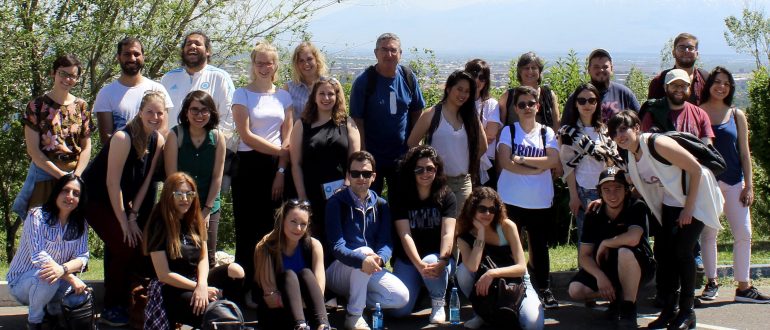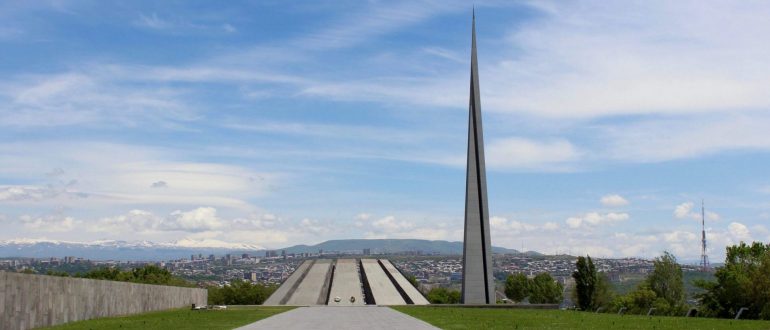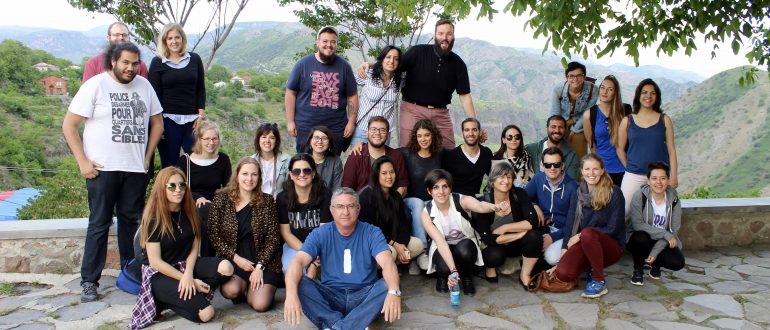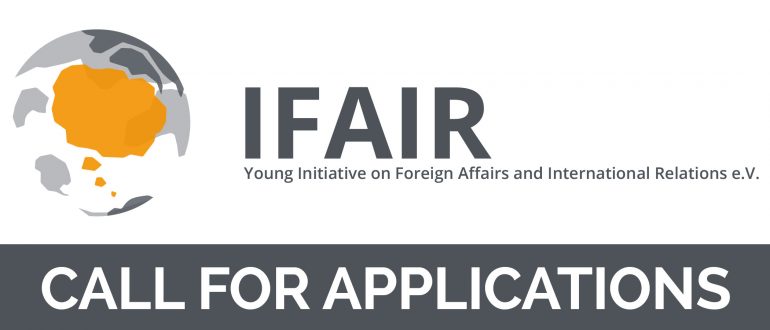
Overcoming the past, without forgetting it
Processes of remembering, reappraising the past and reconciliation benefit from social dialogue. This enables blind spots in the understanding of historic truth and the barriers to international cooperation from past burdens to become visible. To reduce images of the other, to strengthen the cooperation between civil societies and to encourage processes of reconciliation through joint projects, IFAIR e. V. initiated the ambitious three-part project “Common Remembrance, Future Relations” with participants from Armenia, Germany, France, Israel and Turkey.
Under patronage of the State Minister for Europe in the Foreign Office, Michael Roth, IFAIR e. V. conducted a pilot project to promote intercultural dialogue between twenty NGO representatives from Armenia, Germany, France, Israel and Turkey relating to remembrance and overcoming the past. The primary objective of the project was for the participants to develop their own cooperation projects, thereby contributing to the overall sustainability of the project. After a successful initial workshop in Yerevan, Armenia, last May and inspiring work shadowings, the participants met for the third and last time from 7 to 10 September 2017 in Berlin.
At the initial workshop in Yerevan, eight teams formed to develop joint projects. Over the summer, they were hosted by their project partners for three to five days in order to understand their work and come up with specific project ideas. An Israeli participant and his German colleague said about their stay in Armenia: “The work shadowing was crucial for the development of our project. We were able to expand our understanding of Armenian and Jewish/Israeli history and culture and make our project idea realistic.” The team plans to bring together young people from Armenia, Israel and the Jewish diaspora for them to learn about each other’s history and and consequently overcome prejudices.
The work shadowings were also significant for the participants to personally deal with the topics of remembrance and overcoming the past. One German participant reported: “For the first time in my life, and above all on Israeli soil, I met someone who had been interned in several camps and survived a death march – someone who had experienced unimaginable suffering that I had only been able to grasp to a very limited extent from books and films.” With his Israeli project partner, he aims to develop a gamification method for museums to facilitate the visitors’ learning about the Holocaust.
Finally, the evaluation meeting in September enabled the participants to present their project plans, exchange their views on the challenges of international cooperation and expand their project management skills in a fundraising workshop. A meeting with the Directorate-General for Culture and Communication at the Federal Foreign Office provided a special opportunity to reflect on and evaluate the project. In addition, the three-day seminar, included a presentation on remembrance culture in Germany and France and a city walk ‘Berlin as a memorial landscape’ by the Foundation Monument to the Murdered Jews of Europe which enabled deeper insights into Germany’s remembrance culture.
The project “Common Remembrance, Future Relations” hence provided the NGO representatives with assistance to develop joint projects and was officially ended with the meeting in Berlin. IFAIR e. V. will remain in close contact with the teams to provide advisory support until the implementation of the joint projects.
This article was published in November’s issue of the Diplomatic Magazine.



